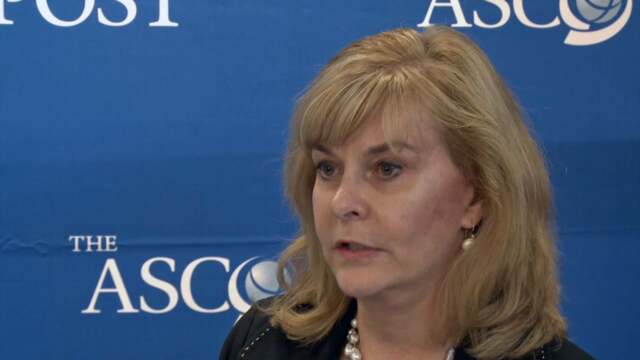James O. Armitage, MD, FACP, FRCP, and Hagop M. Kantarjian, MD
James O. Armitage, MD, FACP, FRCP, of the University of Nebraska Medical Center, and Hagop M. Kantarjian, MD, of The University of Texas MD Anderson Cancer Center, discuss the diagnosis and genetics of ALL, differences in treating younger and older patients, and the latest data on the use of tyrosine kinase inhibitors, monoclonal antibodies, and CAR T cells.
Julie M. Vose, MD
Julie M. Vose, MD, MBA, FASCO, of the University of Nebraska Medical Center, offers her thoughts on abstract 673, “The AETHERA Trial: Results of a Randomized, Double-Blind, Placebo-Controlled Phase III Study of Brentuximab Vedotin in the Treatment of Patients at Risk of Progression Following Autologous Stem Cell Transplant for Hodgkin Lymphoma,” presented by Craig H. Moskowitz, MD.





